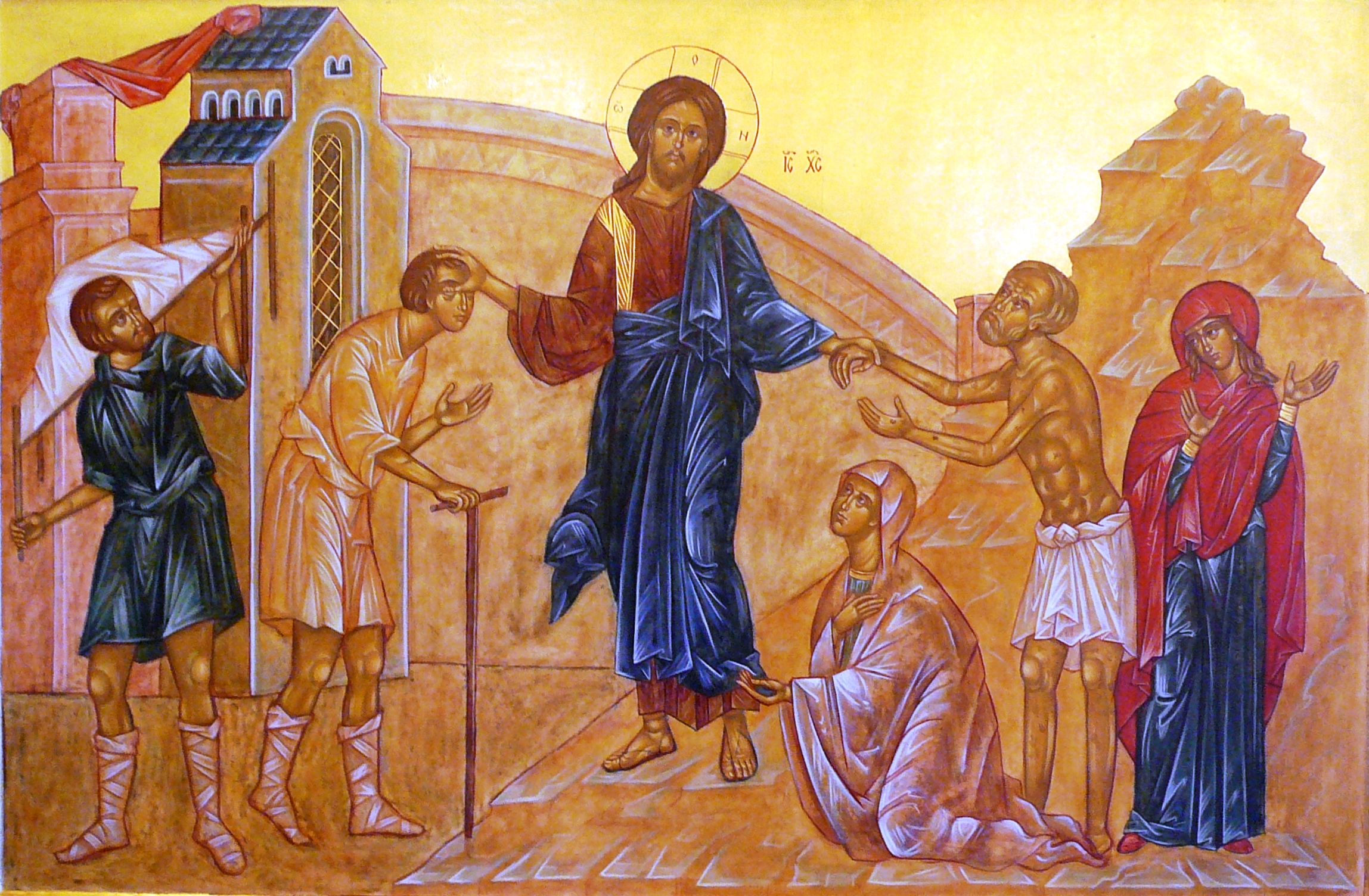by Brent Kostyniuk
“Cure the sick, O physician of our souls and bodies.” So we pray at each Divine Liturgy. This petition reminds us not only of our need for healing but helps us to recall the many miracles of healing which Jesus performed during his public ministry. During those three years, our Lord showed His compassion for the sick, the suffering, the destitute, and even the dead. In performing these miracles, Jesus revealed both his divinity and his humanity. In like manner, when we show love towards others, we reflect the compassion which ultimately comes from God.
In His role as physician of souls and bodies, Jesus would heal in that particular order. First, he would forgive sins, and only then perform a miracle of physical healing, sometimes seemingly almost as an afterthought. Clearly, reconciliation with the Father was, and is, infinitely more important than a return to good health.
One of the first miracles recorded in the synoptic Gospels was the healing of a paralytic man while Jesus was teaching in his home in Capernaum. (Interestingly, this is known as the “Healing of the Paralytic,” when it could equally be known as the “Faith of Four Friends.”) So many people had gathered to hear Jesus that the house was unapproachable. Yet this did not deter the paralytic’s friend’s faith or their drive.
Unable to get near Jesus because of the crowd, they opened the roof above him. After they had broken through, they let down the mat on which the paralytic was lying. When Jesus saw their faith, he said to the paralytic, ‘Child, your sins are forgiven.’ Now some of the scribes were sitting there asking themselves, ‘Why does this man speak that way? He is blaspheming. Who but God alone can forgive sins?’ Jesus immediately knew in his mind what they were thinking to themselves, so he said, ‘Why are you thinking such things in your hearts? Which is easier to say to the paralytic, your sins are forgiven, or to say, Rise, pick up your mat and walk? But that you may know that the Son of Man has authority to forgive sins on earth,’ he said to the paralytic, ‘I say to you, rise, pick up your mat at once, and go home.’
Mark 2: 4-11
Faith plays a central role in all of Jesus’ miracles. With great faith, Jesus did not even have to be present for a miracle to occur. A Roman centurion, who had built a synagogue for the Jews, asked Jesus to heal his servant, displaying just such faith. As Jesus approached the centurion’s house, the soldier stopped him, saying, “Lord, do not trouble yourself, for I am not worthy to have you enter under my roof. Therefore, I did not consider myself worthy to come to you; but say the word and let my servant be healed” (Luke 7: 6-7).
While Jesus did not have to be actually present for a miracle to take place, at other times, he required active participation for healing to occur. When Jesus passed by a man born blind, the disciples asked whose sin it was that brought about. Jesus replied there was no sin, but rather the blindness was so the glory of God could be revealed. “When he had said this, he spat on the ground and made clay with the saliva, and smeared the clay on his eyes, and said to him, ‘Go wash in the Pool of Siloam.’ So he went and washed, and came back able to see” (John 9: 6-7).
Was the mud the instrument by which the miracle took place? No. Did Jesus need the mud to produce a miracle? No. Rather, Jesus was showing us that we must cooperate with Him in receiving a miracle. The blind man’s act of faith in going to the pool to wash was an outward sign of his belief that healing would take place. Here, unlike the two previous instances, Jesus approached the person upon whom he was about to bestow a miracle. Yet faith was still essential.
Today, just as it was 2000 years ago, we seek miracles of healing. Today, as then, we cannot demand, but only ask with faith. Now, as then, we do this in a variety of ways. We may approach Jesus directly through prayer, or we may ask others to intercede for us. Pilgrims from around the world travel to the shrine of Blessed Martyr Vasyl Velychkovsky in Winnipeg to pray for a gift of healing. Faith also directs us to call upon a priest for the Mystery of Anointing of the Sick. Following the pattern shown us by Jesus, the Mystery first absolves us of our sins, then asks that healing be granted, perhaps in a miraculous way.
Just how that miracle occurs we leave to Jesus. Perhaps Jesus will perform His miracle through the agency of others. Each day, He answers our prayers through the skill and talent of surgeons and other medical professionals. Just because He has not physically applied mud to our eyes or directed us to get up and leave our sick bed, it does not mean He has not been instrumental in a miraculous healing for which we have been ardently praying. A person whose heart no longer functions undergoes an operation to receive a new one. A surgeon’s skilled hands remove a life-threatening cancer. Are these any less miracles than those witnessed in Galilee so long ago?
Ultimately, whether a miracle is granted is not up to us. However, we do pray, we do reach down for strength of faith, and we do hope that Jesus, the great physician of souls and bodies, will take pity on us and heal that which threatens us.

